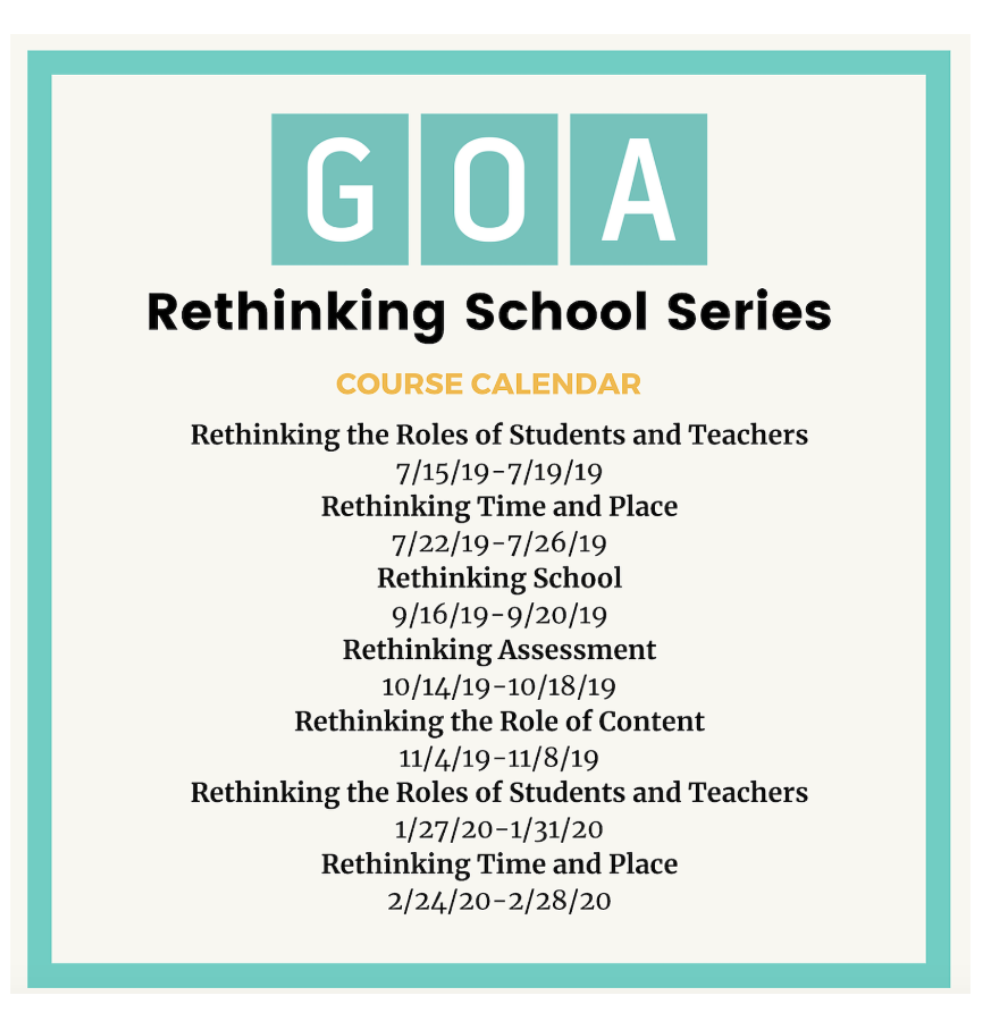Three Strategies for Rethinking the Role of Content in School
About a decade ago, the Lawrenceville School conducted a striking experiment. At the beginning of the new school year, the school asked students to retake their science finals from the previous June. Even though low-level questions had been removed, the average exam grade dropped from a B+ (87%) to an F (58%). Learning that, I found myself experiencing an existential crisis as an educator. Does anything I do in my classroom actually matter?
When I reflect back on my own high school experience, however, I realize quite a few things have stuck. My job is to write curriculum, communicate with schools, and design professional learning workshops; I know that the writing and public speaking skills I learned in high school are valuable. I haven’t taken a math or science class in a long time, but I without a doubt use that knowledge whenever I’m assembling a bar stool, baking a new dessert, or figuring out how much to tip a waiter. When I watch or read the news, I draw upon my knowledge of American Government to make sense of what’s going on with U.S. politics.
Thinking about both the Lawrenceville experiment and my own experience raises a few questions: What is the purpose of learning content? Is it to show what we know? To score well on a test? To prepare for college? To use later in life?
GOA’s most recent one-week online course, Rethinking the Role of Content, raised these questions and many more. This online class for teachers, the third in GOA’s Rethinking Series, provoked conversations about why we teach the way we do, how we determine what to teach, and what more we can do to promote deeper learning in our students.
The more than 200 participants from schools around the world shared some important insights and questions. We saw three broad themes.
1. Rethink the Relationship Between Content and Skills
Education does not have to be a zero sum game between content and skills. Rethinking the role of content is less about pitting content against skills and more about exploring how skills might be elevated through content. As Jessica Gould (The American School in Japan) said in the GOA Faculty Fireside Chat, “Skill cannot be content-agnostic.”
Participant Insights:
"'Do I have to teach X?' I feel as though that is the question so often under examination when we are doing curricular work. As educators, I feel that we can fall victim to our own nostalgia when it comes to reviewing the content. Rarely in life do my students need to share what they learned in 9th grade World History; however, there are essential understandings and skills that I want them to have.” -Yom Fox, The Dalton School
“As an educator and administrator trying to move my school forward... the content/skills question seems to come up as a dichotomy rather than a healthy tension in conversations with teachers, parents, and more. I am looking for ways to help folks articulate and navigate content and skills, with the hope that we can get to a place of agreement and excitement about content-serving-skills.” -Meera Shah, Carolina Day School
“We don't lose as much content as we think we do when we change tactic.” -Deirdre Mingey, The Dalton School
2. Embrace the Potential for Equity and Social Justice in the Classroom
The idea of preparing students to be empathetic, socially responsible, and culturally aware emerged as a key motivation for participants to rethink the role of content. One strategy: don’t let the calendar rule curriculum and content.
Participant Insights:
“Is my real intention to teach a survey course, or am I trying to get my students to understand and empathize with the human experience while developing their critical thinking and communication skills? It’s always been the latter, of course, but if that’s the case, why have I been so focused on curating my curriculum with the former at the forefront of my mind?" -Kelsey Carper, Gilman School
"Freed from coverage expectations, teachers can prioritize activities and assessments that require empathy, collaboration, and meaningful engagement with our complex world." -Brian Ledyard, Gilman School
"What are the ways we can frame and use deeper, skills-based learning to prepare our students not only for a changing economy but also as leaders who address rather than purely benefit from societal inequities?" -Laura Twichell, Concord Academy
3. Encourage Agency by Elevating Student Voice
Participants argued for applying essential content rather than absorbing a large quantity of content. In the GOA Faculty Fireside Chat, Matt Westman (King’s Academy) said he wanted his students to behave like language learners and try to communicate imperfectly rather than to score perfectly on a test. The importance of having students think like scientists, write like historians, and create like artists underscores how critical authentic experiences are.
Rethinking the role of content also empowers us as educators to provide more agency to our students. By creating the space for students to operate as co-creators and co-curators of content, we’re able to get students to higher levels on Bloom’s taxonomy more frequently.
Participant Insights:
"One small step I took this year was to ask students in my environmental science class to envision themselves 30 years from now...I was surprised by many of their answers, and this helped me better understand what was (and wasn't) important to them. It provided a classroom culture of shared learning and also a place of compromise. It did not mean that I had to give up content that I felt important, but simply showed me how to make it more relevant to them." -Stacey Summitt-Mann, University High School of Indiana
"Truly engaged students who learn the skills of the class are going to use those skills to seek out more content, especially content that will be retained. As one of the sources mentioned, learning how to think like a historian or perform experiments like a scientist is what will last in students' minds." -Margee Husemann, Carolina Day School
"While the move toward a 'content curator' is an important step in our faculty's self-understanding, ultimately deeper learning requires faculty that primarily think of themselves as coaches for competency and dedicate more time and energy to providing feedback to students in those skill areas. To rethink the role of content in schools requires faculty to rethink their identity as teachers and gain sufficient confidence to give feedback to students about their skills as collaborators, designers, etc." -Kirk Greer, Latin School of Chicago
Join Our Online Classes for Teachers

The GOA Rethinking Series is open to all educators and free for our members.
Join this global conversation about the future of school! Our Rethinking Series runs all year. We’re offering summer professional development courses in 2019: “Rethinking the Roles of Students and Teachers” will run from July 15-19 and “Rethinking Time and Place” will run from July 22-26. For more course dates, see below. Registration is open. Enroll today.
